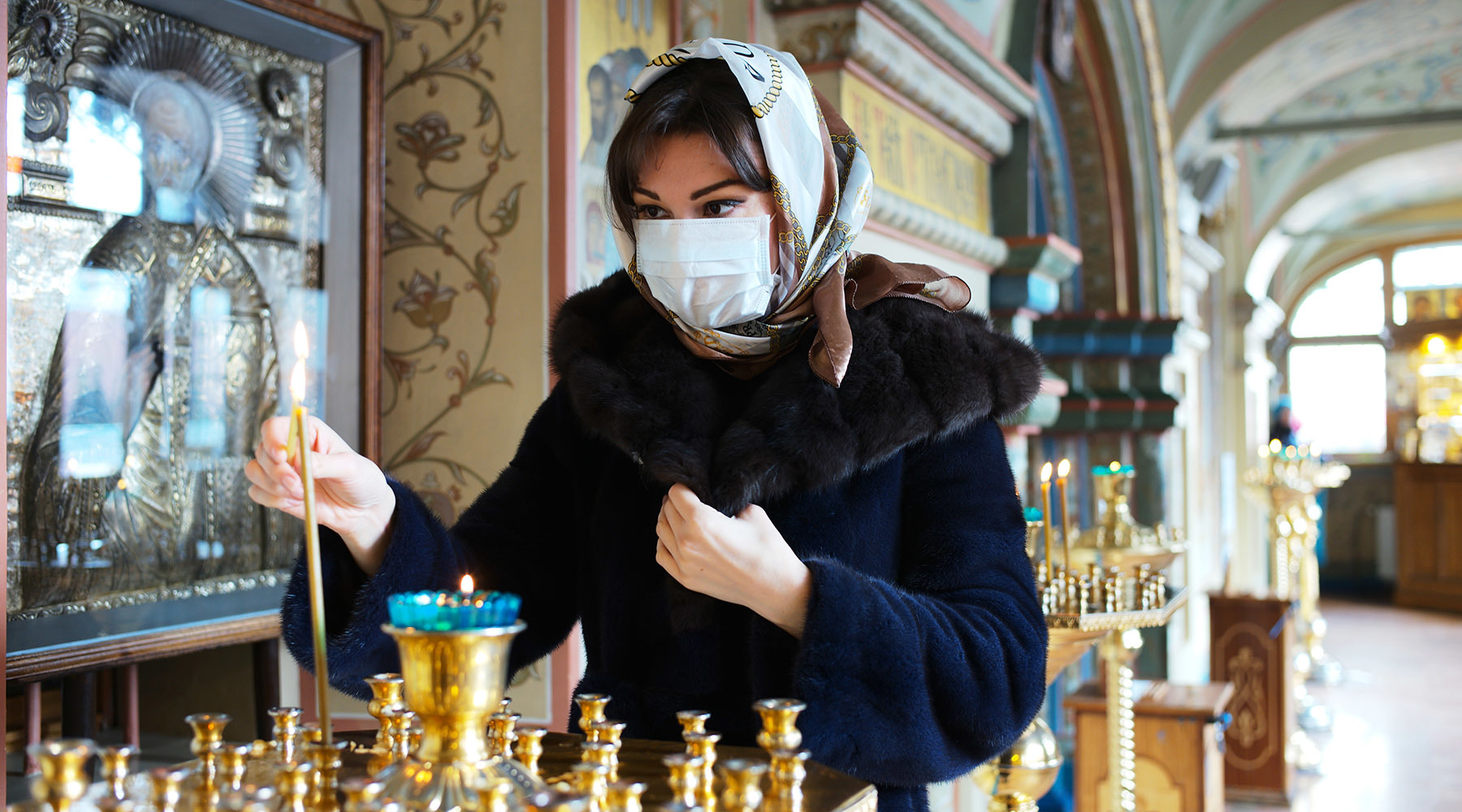Russian President Vladimir Putin called the difficult situation in the field of interethnic and interreligious relations in a number of countries.
He stated this during a meeting with representatives of religious confessions.
The Russian leader noted that traditional values are facing serious challenges, and issues of interethnic and interreligious relations are becoming the subject of speculation and "unscrupulous geopolitical games."
According to him, they are trying to "parasitize extremists and radicals, inciting mutual hatred and enmity."
“The situation in a number of countries, we see it, is complicated, and we see what the actions of all sorts of provocateurs lead to, those who, under the guise of freedom of speech, offend the feelings of believers, and those who use this as a pretext to justify violence and intolerance.
The result is the same: in society, conflicts are growing like a snowball, and they can smolder for years and decades, ”the President noted.
At the same time, he stated the need "to do everything possible to, in principle, exclude such a development of events in our country."
Putin stressed that for Russia, "a big, huge country, interethnic and interreligious peace is the basis of the foundations."
“This area needs constant attention of the authorities, civil society, and the media.
The work here must be subtle, meaningful and painstaking.
And we are trying to act this way - as delicately and constructively as possible, ”the president said.
During the meeting, the Russian leader also supported the idea to call on other countries at the UN platform to adopt legislation that would protect the feelings of believers.
He promised to think over this proposal and give the Foreign Ministry a corresponding instruction.
Putin noted that not all of Russia's proposals are accepted on international platforms, but added that he did not understand who might be against such an initiative.
At the same time, the President noted that the adoption in Russia of a law prohibiting insulting the feelings of believers was the right decision.
RIA News
© Sergey Pyatakov
In addition, during the meeting, Vladimir Putin touched upon the topic of the provisions on the institution of the family that were included in the Constitution.
The President commented on the words of the Bishop of the Russian United Union of Christians of Evangelical Faith (Pentecostals) Sergei Ryakhovsky, who drew attention to the fact that not everyone in other countries liked this Russian example.
The head of state noted that Russia's goal is "not to please someone, but ... to strengthen itself."
“You said that someone doesn't like something about what we do.
This is very strange, because we do not interfere with anyone, but we proceed from the fact that our goal is not to please anyone, and our goal is to strengthen ourselves, ”the president explained.
Also, the head of state touched upon the situation in Nagorno-Karabakh and expressed the opinion that the conflict in the region could be resolved peacefully.
“You know, Russia is doing everything to save the lives of people who stand opposite each other and, unfortunately, still see each other in the sights of machine guns and rifles, use weapons against each other to achieve those goals that, in our deepest conviction, could be achieved in the course of the peace negotiation process, ”Putin said.
He stressed that the Russian side is in contact with both Armenia and Azerbaijan.
“You know, Russia is doing everything that depends on us to bring the conflict in the South Caucasus to an end, and as soon as possible,” the Russian leader said.
During the event, the President congratulated the citizens of Russia on the Day of National Unity, recalling that the holiday was timed to coincide with the events of the early 17th century, “when the people of Russia put an end to the tragedy of the Time of Troubles,” and noting that among those who “rose up against internal strife and humiliation countries, there were representatives of different nationalities and religions. "
The president's statements came amid a series of attacks by Islamists in Europe.
We will remind, on October 16, in a suburb of Paris, a man attacked a teacher of a local college and killed him.
The deceased showed his students cartoons of the Prophet Muhammad as part of the study of the topic of freedom of speech.
Later in Nice, a man stabbed people in Notre Dame Cathedral, killing three people.
On the evening of November 2, a terrorist attack took place in Vienna, six attacks were carried out in the city center.
Four people died, more than 20 citizens were injured.

